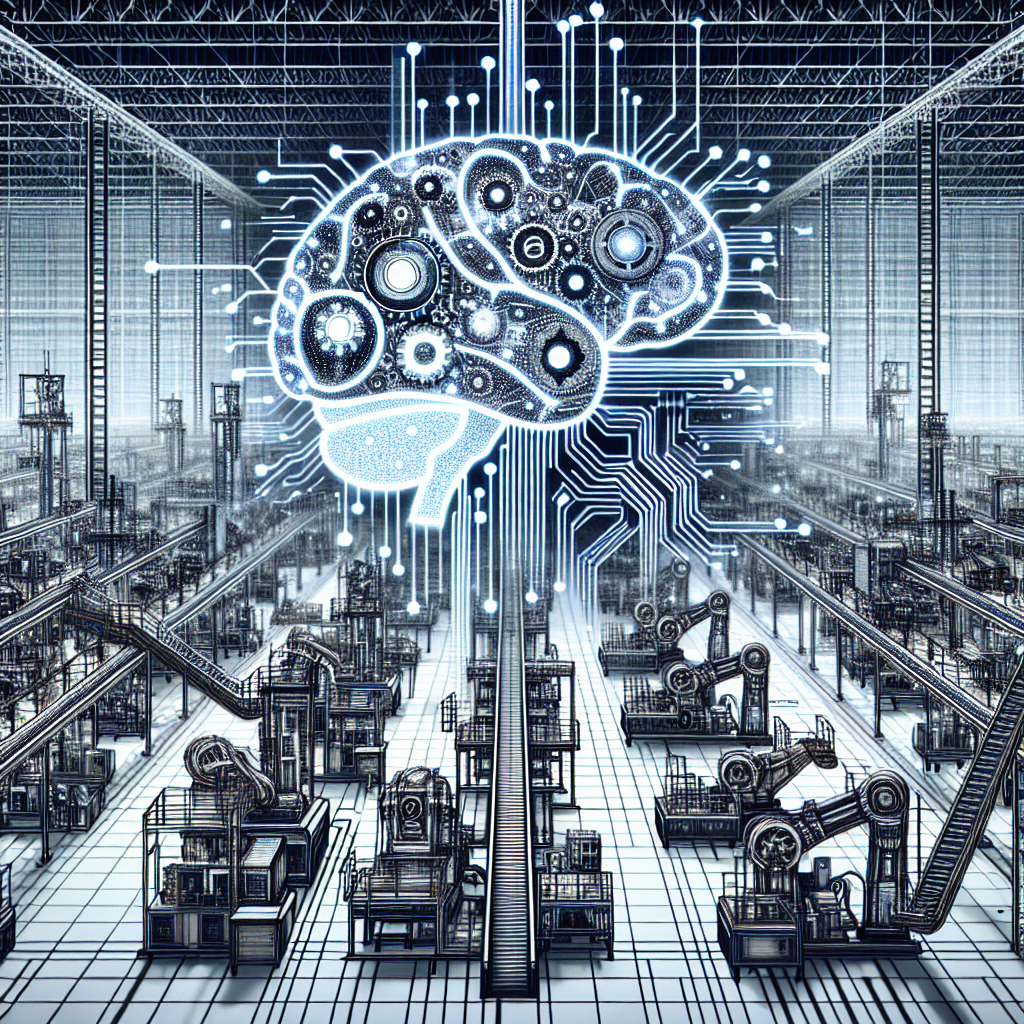Artificial Intelligence (AI) is revolutionizing the manufacturing industry by optimizing processes and increasing efficiency. By utilizing AI technologies, manufacturers can streamline operations, reduce costs, and improve product quality. In this article, we will explore how AI is transforming the manufacturing sector and driving process optimization.
AI in Manufacturing
AI has the potential to transform every aspect of the manufacturing process, from supply chain management to production and quality control. By leveraging AI technologies such as machine learning and predictive analytics, manufacturers can make data-driven decisions that improve productivity and reduce waste.
One of the key advantages of AI in manufacturing is its ability to automate repetitive tasks and optimize processes. For example, AI-powered predictive maintenance systems can analyze data from sensors and equipment to detect potential issues before they occur, reducing downtime and increasing machine reliability.
AI can also improve product quality by analyzing data from production processes to identify defects and deviations in real-time. By using AI algorithms to monitor and control production parameters, manufacturers can ensure consistent quality and reduce the number of defective products.
Process Optimization with AI
Process optimization is a key area where AI can make a significant impact in manufacturing. By analyzing data from various sources, including sensors, machines, and production systems, AI can identify bottlenecks, inefficiencies, and opportunities for improvement.
One of the ways AI can optimize manufacturing processes is through predictive maintenance. By analyzing historical data and sensor readings, AI systems can predict when equipment is likely to fail and schedule maintenance before it occurs. This proactive approach to maintenance can reduce downtime, extend equipment lifespan, and improve overall operational efficiency.
AI can also optimize production scheduling by analyzing factors such as machine capacity, material availability, and order deadlines. By using AI algorithms to generate optimized production schedules, manufacturers can minimize lead times, reduce inventory costs, and improve on-time delivery performance.
Another area where AI can drive process optimization is in quality control. By analyzing data from production processes, AI systems can detect defects and deviations in real-time, allowing manufacturers to take corrective action before defective products are produced. This proactive approach to quality control can improve product quality, reduce scrap rates, and enhance customer satisfaction.
FAQs
Q: What are some of the key benefits of using AI for process optimization in manufacturing?
A: Some of the key benefits of using AI for process optimization in manufacturing include increased efficiency, reduced costs, improved product quality, and enhanced decision-making capabilities. By leveraging AI technologies, manufacturers can streamline operations, automate repetitive tasks, and make data-driven decisions that drive continuous improvement.
Q: How can AI help manufacturers improve product quality?
A: AI can help manufacturers improve product quality by analyzing data from production processes to detect defects and deviations in real-time. By using AI algorithms to monitor and control production parameters, manufacturers can ensure consistent quality and reduce the number of defective products. Additionally, AI-powered predictive maintenance systems can help manufacturers prevent equipment failures that can impact product quality.
Q: What are some of the challenges associated with implementing AI for process optimization in manufacturing?
A: Some of the challenges associated with implementing AI for process optimization in manufacturing include data integration, skills gap, and change management. Manufacturers may struggle to integrate data from various sources, such as sensors and production systems, into AI algorithms. Additionally, there may be a skills gap in the organization when it comes to implementing and managing AI technologies. Finally, change management can be a challenge as employees may be resistant to adopting new technologies and processes.
In conclusion, AI is transforming the manufacturing industry by driving process optimization and efficiency. By leveraging AI technologies, manufacturers can streamline operations, reduce costs, and improve product quality. As AI continues to evolve, we can expect to see even greater advancements in manufacturing processes and outcomes.

